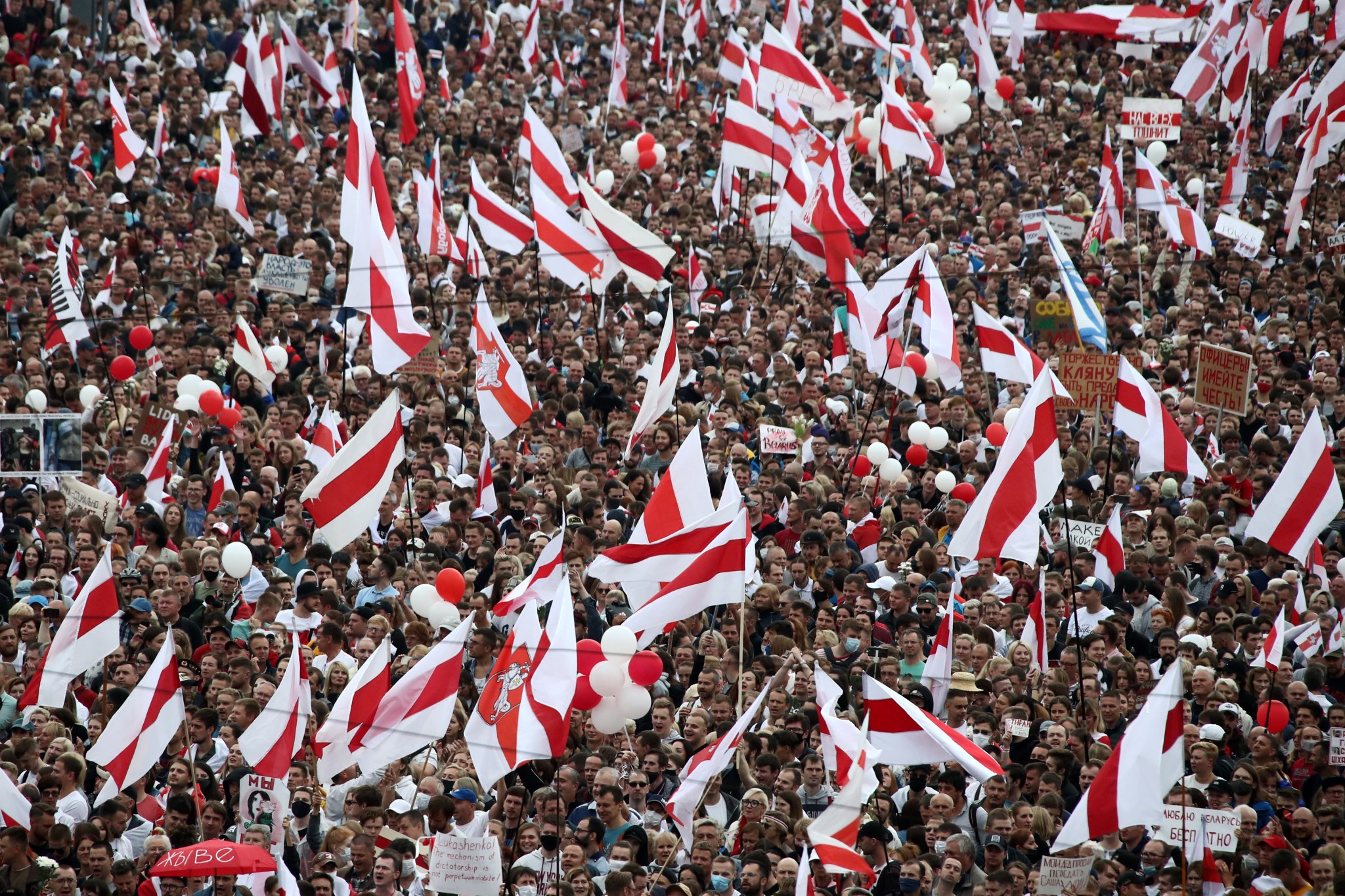The Day that Gave Rise to a New Democratic Movement in Belarus

Today in Belarus you can be arrested for wearing the wrong color socks, buying red and white bouquets, or even for dancing. These unusual crimes are a result of the protests which began after the fraudulent election held on August 9, 2020. Historically, politics are rarely discussed in Belarus for fear of reprisals from the government. However, the government’s failure to handle COVID-19 and Lukashenko’s history of corruption sent protesters into the streets. It was clear they wanted liberation from “Europe’s last dictator.”
Though the Soviet Union was dissolved in 1991, Belarus’ government remains largely unchanged from Soviet times. While Belarus holds presidential elections, it has not had a new leader since 1994. Despite Alexander Lukashenko’s iron grip on the country, there has always been a small yet active opposition movement. However, opposition candidates are often arrested on trumped-up charges or face short term administrative detentions to stifle the momentum of their campaign. Those candidates who do manage to avoid arrest struggle to run effective campaigns due to numerous regime-imposed obstacles, such as limited access to state media coverage, a biased election commission, voter coercion, and lack of transparency during election procedures.
In fact, all three of the 2020 presidential candidates, Sergei Tsikhanovski, Valery Tsepkalo, and Viktor Babariko, were either arrested or fled the country. In their place rose three women, Sviatlana Tsikhanovskaya, Veronika Tsepkalo, and Maria Kolesnikova, who ran the opposition’s campaign for the 2020 election. Alexander Lukashenko did not believe that these three women posed a threat and allowed Sviatlana Tsikhanovskaya to run for president, a decision that gave rise to a new and emboldened democratic movement.
August 9, 2021 marks the one-year anniversary of Belarus’ democratic revolution in which hundreds of thousands of citizens protested the country’s election. This was the most spectacular outburst of civic dissent in the country’s modern history. Earlier that year, citizens had begun to demand change as they watched their government sit idle as their friends and family died from a virus that Lukashenko refused to acknowledge. This desire for change led to an unprecedented number of people showing their support for the opposition. On August 9, it was evident that citizens were no longer content to allow Lukashenko to continue to steal elections and deny the country the change it desperately needed.
Following the announcement of the election results, Sviatlana Tsikhanovskaya’s supporters took to the streets in unprecedented numbers to protest throughout the month of August. Despite the serious repercussions they would face, citizens flocked to city centers by the masses. The regime’s violence did little to deter protesters. In fact, workers from state-run factories, which make up a large portion of Lukashenko’s avid supporters went on strike. People understood the sacrifices they were making by participating in these protests; however, they had come to realize that the consequences of inaction were far greater.
These protests strengthened the democratic movement within Belarus, which aims to establish free and fair elections and end the regime’s human rights abuses. Frightened by the strength the opposition displayed, the regime passed a series of repressive laws in response. In anticipation of the first anniversary, the government in Minsk has been leading the country’s largest crackdown on democratic activists. However, slowing their momentum could be hard as the fight for democracy has gained increased international awareness and support. Belarusians voted for a new Belarus when they took to the streets.
The peaceful protests that swept the country demonstrated the courage and dignity of ordinary Belarusians. It is evident that the 2020 elections empowered citizens to dance, fly flags, and wear the wrong color socks to fight for political change. Belarusians are on the forefront of the struggle for democracy. On this anniversary, the opposition is calling on democratic allies around the world to show their support for the Belarusian people by organizing performances and rallies, releasing statements, wearing or displaying national Belarusian colors, getting informed about the crisis in Belarus, and spreading the word. With continued international support, the Belarusian people might one day have the freedom they so passionately desire.
Top